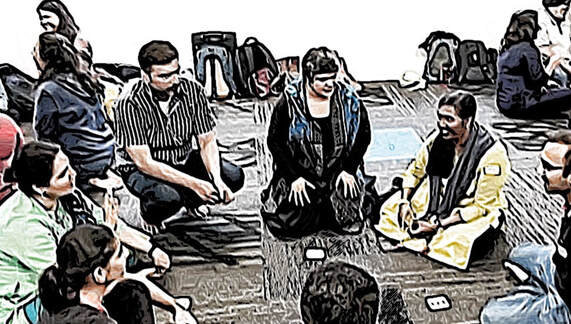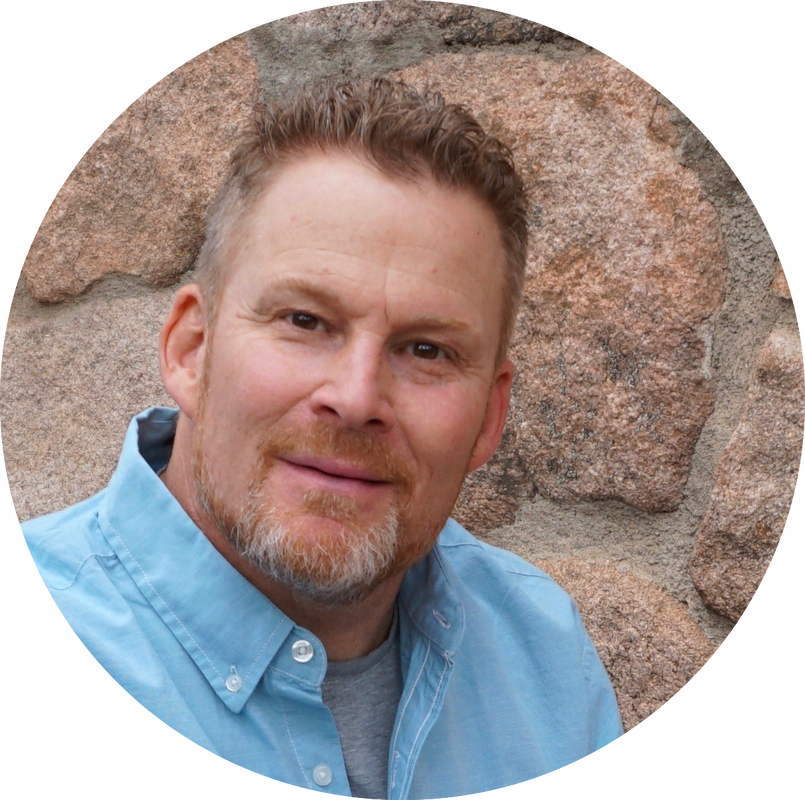|
As an adventure educator and team builder, I am now a dedicated fan of, High 5 Adventure - The Podcast (I access through iTunes). A super-huge THANK YOU to High 5 (and Phil Brown) for putting the energy into this.
Recently, I listened to the episode: Tinker Talk - Facilitation Tips We Now Disagree With. It inspired me to think about expectations. The practitioners in the Tinker Talk episode talked about things they learned in their career that they don't necessarily believe are the only possible option any longer. For example, one of them talked about 'Artificial Source Goals.' These are the goals given or spoken to you, as the scheduled program facilitator, by the 'person-in-charge' wanting you to accomplish (often times in the absence of this said person). The goals are not coming directly from the group. When you start working with them, you find out these 'artificial' goals are not realistic. The group needs other skill development work before focusing on the goals you have in your hand. If the expectation is to meet the 'given' goals, how do you move ahead? Early on in my team building days, I would push through and try to pull out learning from my groups to meet the expected goals. Sometimes it was possible, other times not. But I was doing what was expected. Now, based on more time with groups, I do my best to work with the them where they are - often simply asking them how they want to spend their time in this learning context. Sometimes we can work with 'expected' outcomes, other times we work towards other ends. If other ends become evident, we travel this path. After the program, I inform the 'person-in-charge' what outcomes were accomplished and any of the connections they had to meeting the goals this person had in mind. Or, if there was no connection, I inform this person what the group did take away. (What happens after this conversation I'll save for another post.) My confidence to work with a group where they are comes from years of experience and being able to build trust with my groups (and the organizations I work for and with) in order to ask them what they need. Focusing on expectations (given to, or created by you), is related to the 'Ascending Reticular Activating System' - ARAS (a little summary of ARAS HERE). In a nutshell, what you think about, you focus on. (Some of you might recognize this as confirmation bias.) If we limit what we are looking for, we may miss something important. In the movie Zero Effect, Daryl Zero (Bill Pullman) says, "If you are looking for something in particular, you are likely not to find anything. However, if you're looking for anything, you're likely to find something." As team builders, how do expectations shape our programming, facilitating and processing? How about a simple check in before we dive into any of these aspects of engaging with our groups:
Expectations are neither good nor bad, they are simply another tool at your disposal. And, like any other tool you have, it's how you use it that counts. The Final Question: Expectations and Un-Expectations - how does this polarity or, dichotomy or, continuum relate to your practice? Love to hear from you. Share in the Comments!
Chris Cavert, Ed.D.
FUNdoing.com (Activity resources for Team Builders) TeamBuilderPowerUps (An online school for Team Builders) YoungTeamBuilders (The voices of young Team Builders)
4 Comments
Hey, Chris! "Expectations" is one of my favorite topics! I always try to challenge groups to recognize and challenge expectations they have for themselves or others, and often ask them to let go of some expectations they hold which no longer serve them in learning or growing. There will, of course, always be expectations and we all have to be able to meet those expectations. Often, though, when considering our expectations of ourselves or others, we find that those expectations come from somewhere else altogether separate. It's the old ham in the pan story.
Reply
Chris
1/14/2020 06:44:55 pm
Thanks for sharing your thoughts Floyd! I love the 'Possibilities Assessment.' And, if this can be done with everyone in the group - what a great start. (If you have a digital copy of this, could you share it with us? This would be a good blog post at OTB - interested in guest writing?)
Reply
Vivek
1/20/2020 09:35:19 am
Hey Chris,
Reply
Chris Cavert
1/22/2020 06:05:12 am
Thanks for sharing Vivek. I have been there too. The choices we make will lead to what's good, better or best for our participants and programs. Keep me posted!!
Reply
Your comment will be posted after it is approved.
Leave a Reply. |
OnTeamBuilding is a forum for like-minded people to share ideas and experiences related to team building. FREE Team Building
Activity Resources OTB FacilitatorDr. Chris Cavert is an educator, author and trainer. His passion is helping team builders learn and grow. Archives
January 2024
|



 RSS Feed
RSS Feed